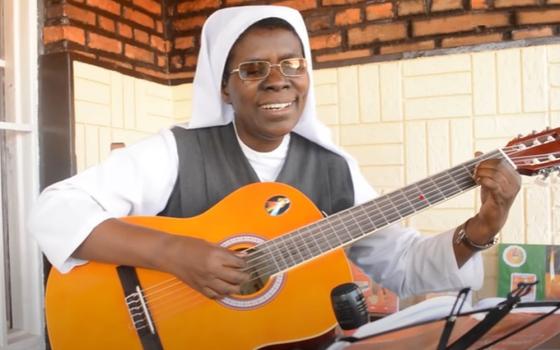The sun was beginning to cut the chill of the Andean morning when the group gathered around a fountain in an outdoor courtyard. This is how the summit of the Global Alliance for the Rights of Nature began, with Tai Ta Carlos, an elder from this territory, leading a ceremony of thanksgiving to Pachamama, Mother Earth, for the life that sustains us.
Speaking of the damage we are doing to Earth, he said, “We must recognize that we are part of the natural world.”
In one form or another, this was the plea underlying each of the reports given about state of the "rights of nature" movement around the world. Its urgency was underscored by the indigenous peoples attending the conference, coming from the Alberta tar sands -- where aboriginal actress Tantoo Cardinal grew up “when the Earth was green and I was raised by the four-leggeds and winged ones” -- to the heart of the Amazon.
“What they’ve done to the land, air and people, there’s such sickness, it just tears you up,” Cardinal says of the tar sands.
“In our language, the word ‘rights’ doesn’t exist,” said Blanca Chancoso, a Kichwa leader from Cotacachi, Ecuador. “For us it translates to the power to live.”
Gloria Ushigua, a Sapara leader from the Amazon, spoke of the struggle to protect their lands from oil exploitation. On Nov. 28, she and seven women representing their communities went to Quito, Ecuador's capital, where the government was negotiating the sale of their lands to foreign companies.
“Although we were the legitimate representatives, they refused to let us in to present our proposal,” Ushigua said.
A line of police blocked them.
“We yelled, saying we know what the rainforest is, the medicines, the trees, the fruits. It’s sacred. We know what’s happened in other places. Indigenous are dying.
“It hurt our hearts so much, we cried. We'll never give up.”
[Adrian Dominican Sr. Elise D. García, is the former co-director of Santuario Sisterfarm, an ecology center in the Texas Hill Country dedicated to cultivating cultural and biological diversity. She is attending the rights of nature summit, which runs through Friday, and will be blogging updates throughout the week.]
Editor's Note: The National Catholic Reporter is embarking on a groundbreaking project to give greater voice to sisters around the world. To learn more about this project or sign up for email alerts visit, http://ncronline.org/sisters.




